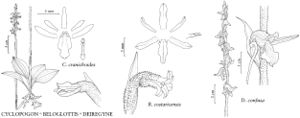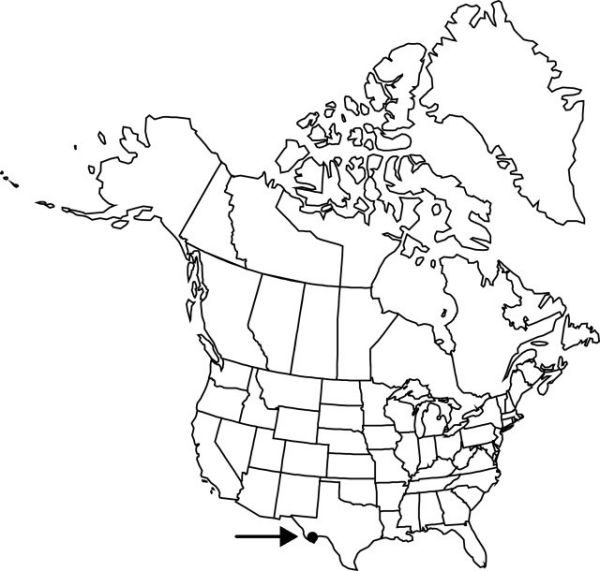Deiregyne confusa
Bot. Mus. Leafl. 28: 283, plate 18C. 1982.
Plants 2.5–5 dm. Roots 7–12, tuberous, fasciculate, large, 12 × 1 cm, fleshy. Stems with 6–9 bladeless cauline sheaths. Leaves absent at anthesis, 2–3, mostly basal; petiole not distinct; blade linear-lanceolate, 15–30 × 2–3.5 cm. Inflorescences to 15 deflexed flowers, secund or loosely spiraled, 6–18 cm, glandular-pubescent; floral bracts ovate-lanceolate, striate-veined, 1–2.5 cm, apex acuminate. Flowers pink or dull brown to purplish with green veins; sepals recurved, 3-veined, glandular-pubescent; dorsal sepal elliptic-obovate, abruptly tapering to apex, concave, slightly constricted to form sac 12–19 × 4.2–5.2 mm; lateral sepals linear-lanceolate, somewhat sigmoid, 11–17 × 2–3.5 mm, apex acute, glandular-pubescent on outer surface; petals linear-oblanceolate, sigmoid, 3–5-veined; lip whitish pink with green veins, 13–20 mm, strongly pandurate, basal portion orbiculate, 7–10 mm wide, pubescent, apical portion suborbiculate, 5–6 mm wide, margins crenulate or erose; column flattened, 8 mm; rostellum cuspidate; anther abaxial; pedicellate ovary green, stout, 10 × 3 mm.
Phenology: Flowering May–Jul.
Habitat: Open grassy slopes in rim rock
Elevation: 2000 m
Discussion
Deiregyne confusa is known in the United States only from the original collections made in 1931 in the Chisos Mountains of Brewster County, Texas. Searches since then have failed to find any more plants (C. A. Luer 1975; J. Liggio and A. Liggio 1999). The Texas plants were originally identified as Spiranthes durangensis Ames & C. Schweinfurth (D. S. Correll 1950). They were subsequently placed in Deiregyne and described as D. confusa Garay. L. A. Garay (1980[1982]) stated that D. durangensis does not occur in the United States.
Selected References
None.

